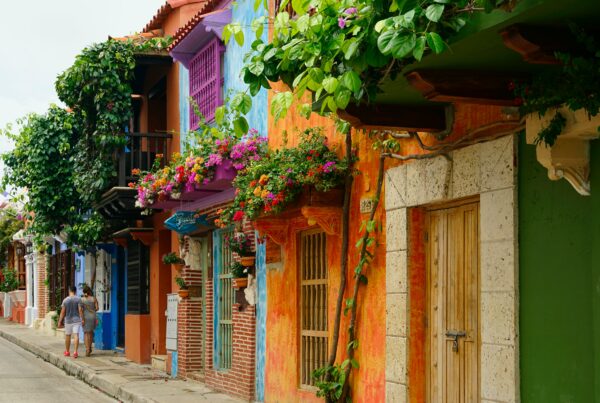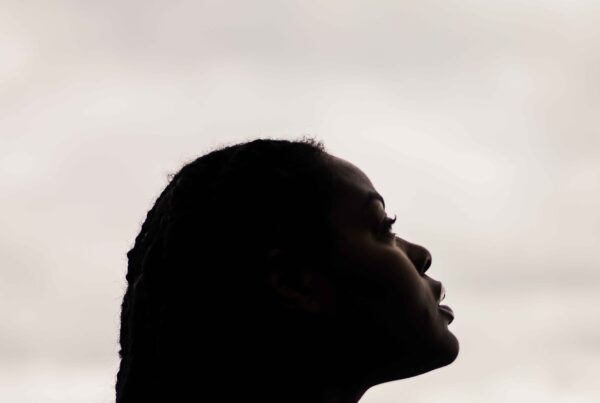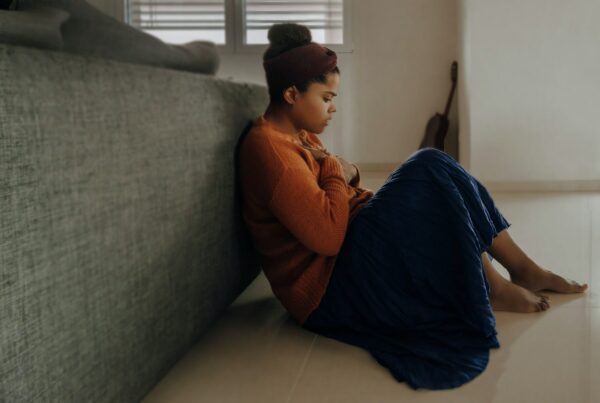Mental Health is a state of well-being in which an individual realizes their abilities, can cope with everyday stresses of life, work productively and fruitfully, and contribute to their community. If I were to ask myself in the past if I had been in a state of well-being, I would have said, “I’m okay” and then continued working and numbing. For years, my physical illnesses throughout my gut, neck, and lower back would tell me otherwise. My emotional and mental health were not OKAY. My physical body was telling me that my emotions are not doing well.
As we head into the two year mark of COVID, we are seeing the effects of the virus. We urgently need to understand how our bodies alert us through anxiety- keeping us alive.. We are often not taught about mental health and illness. Instead, especially in faith communities, we are taught to fix ourselves fast, forget uncomfortable feelings, or even pray them away. I’m not saying prayer isn’t essential, but we need to care and ask ourselves what is actively going on? We often don’t realize how we try to shut ourselves up and stuff it in.
I’ve had mental health struggles since I was in third grade, yet in my experience growing up as an Asian American, there is a stigma and a lot of shame towards mental health. I held it in my body for so long, and it wasn’t until after countless psychology classes that I stepped into psychotherapy. My parents are immigrants who have carried generational trauma that has never been discussed. Especially being a 1.75 generation Taiwanese and Malay Chinese, I saw it in the ways it manifested through gut and neck pain. On top of that, I often found it difficult to find refuge in the church. The lack of acknowledgement and conversations about mental health seemed to further my own questions and doubts.
Can we truly love our neighbor if we don’t tend to and care for our own physical, emotional, and mental parts of our bodies?
What if, instead, we decided to listen to our bodies, the way scripture tells us to love our neighbor as ourselves. Creator created us in his image, and I genuinely believe that Creator wants us to live a life filled with joy, hope, and abundance. Honestly, I struggle with these three words due to the concept of shalom shattered. The build up of shattering occurred when my dignity and nervous system had been harmed, disappointed, or made to feel powerless in my childhood, adolescent, and young adult life. Racial, childhood, collective, and displacement trauma has created many fragments in my life, especially how I see Provider. These past couple of years, I’ve attended psychotherapy, educated myself on the impacts of trauma, and recently started taking medicine for my anxiety and depression. I’ve built the courage to share stories with at least one person who can counteract my experience of pain and hurt that has contributed to my anxiety and depression. It wasn’t easy. I sat in the tensions of anger, doubt, pain, depression, and anxiety with the systemic and generational trauma. I had to realize that Creator is with me in my chaos, depression, anxiety, and trauma. I had to unlearn the ways communities taught me that I had to mend my pain first to feel Creator’s love. Instead, lamenting in the deep pain, sorrow, anxiety, and chaos has helped me understand Jesus’ character sitting with me in the tears and pain that my body has felt.
I realize I need my ecosystem to be rewritten because the reality of stressors, code-switching, displacement, collective, immigrant, and childhood trauma have been a constant ringing fire alarm.
Acting and not running away requires risk and disappointment when we invite someone into our hurts, pains, and triggers to our mental illness or health. You will have moments when you’ll be disappointed and hurt; that is normal. Yet, I want to remind you of the courage it took to invite someone into your ecosystem where it might’ve felt alone and/or on fire. I’m advocating for all of you to at least bring up how you are feeling holistically with one or two people, maybe even give psychotherapy and prescribed medication a chance. I know this may be hard to find; there is a huge demand right now and not enough therapists. I constantly dream of more peer and support groups where BIPOC folks can feel safe to process through complex stressors, trauma, and pain.If you could practically bring your story to at least one person, ask yourself how this is rewriting your experience.
Then ask yourself, “Are they willing to help me rewrite my ecosystem?” and then ask them: “Are you willing to help me rewrite my ecosystem with me?” When we tend to our ecosystems and help others tend to theirs, we can see clearer how Creator is present in our lives in the midst of the fragments.
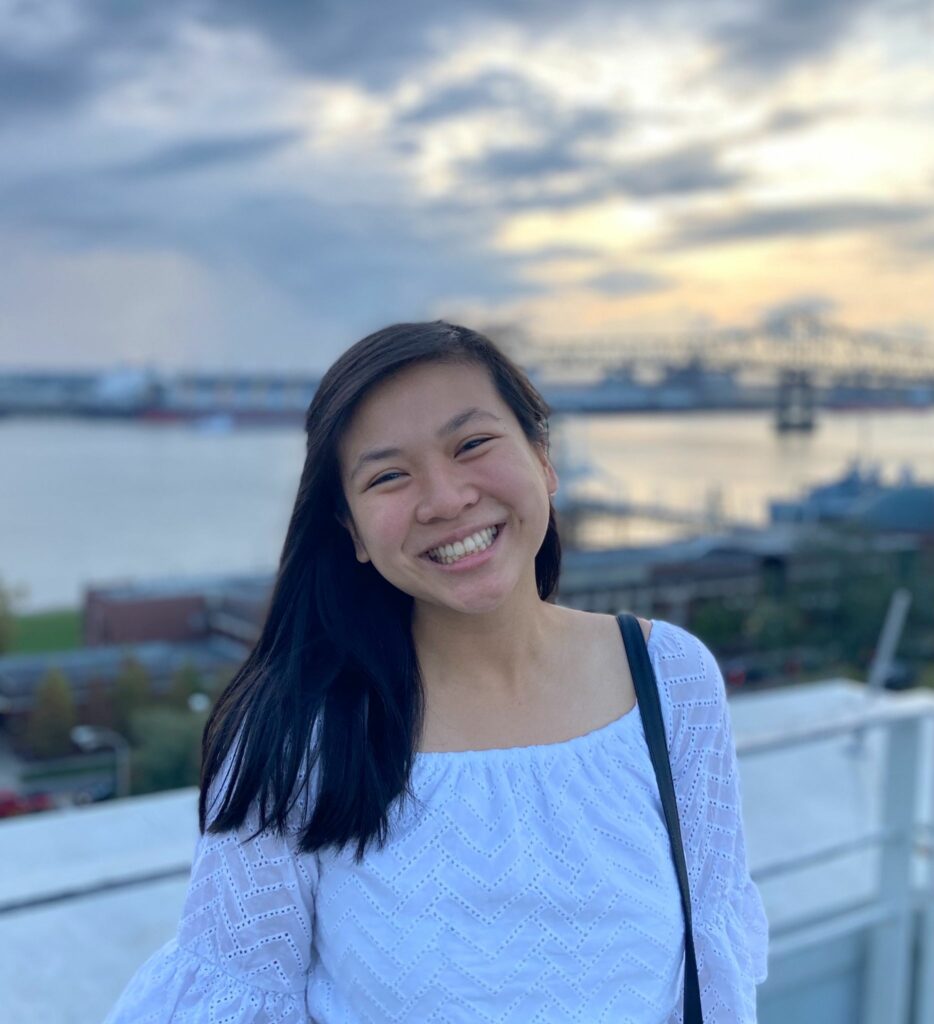
Winnie Chang is a mental health and emotional justice advocate working with college students as a counseling and wellness coordinator and a graduate student in counseling in Houston, TX. Her cultural upbringing as a 1.75 gen, Asian American woman consists of often being the minority in most spaces in Texas. She has also previously worked with college students through campus ministry. Her passion is to help BIPOC folks navigate generational, immigrant/displacement, systemic, and collective trauma.
This entry is part of our blog series on Mental Health. As BIPOC communities, we carry so much personal, communal, generational, and second hand trauma as we seek our collective flourishing and choose to work together so that our communities can thrive. We carry a heavy burden Jesus never intended for us to carry alone. Let’s learn from one another so that we can live a lifestyle of justice that includes our wholeness. Chasing Justice will be guiding our community through the topics surrounding mental health with the following weekly resources:
- Monday Instagram Lives with BIPOC Mental Health professionals.
- Free Justice Masterclass on Mental Health on Feb. 24th.
- Instagram posts for sharing with friends.
- Guest blogs by BIPOC authors who will guide us in their mental health journeys.
The views and opinions expressed on the Chasing Justice Blog are those of the authors and do not necessarily reflect the official policy or position of Chasing Justice. Any content provided by our bloggers or authors are of their opinion and are not intended to malign any religion, ethnic group, club, organization, company, individual or anyone or anything.




